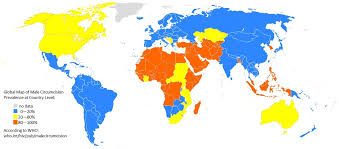Circumcision is a medical procedure that involves the removal of the foreskin covering the head of the penis. While this procedure has been performed for centuries, the practice has come under scrutiny in recent years due to its negative consequences and the lack of medical necessity for it. In this editorial, we will discuss the negative consequences of circumcision and explain that there are no medical reasons to circumcise a child.
One of the most significant negative consequences of circumcision is the pain and trauma that it can cause to the infant. The procedure is typically performed without anesthesia, which can cause significant discomfort and pain. The infant may also experience complications such as bleeding, infection, or even the loss of the entire penis in rare cases.
Another negative consequence of circumcision is the impact on sexual function. The foreskin plays an essential role in sexual function, providing protection and sensitivity to the head of the penis. When the foreskin is removed, the penis can become desensitized, reducing sexual pleasure and function.
In addition to the physical consequences, circumcision also has cultural and psychological impacts. Circumcision is often performed for cultural or religious reasons, but it can also be a source of shame or embarrassment for some individuals. The psychological impact of circumcision can be significant, leading to depression, anxiety, and other mental health issues.
Despite these negative consequences, many people still believe that circumcision is necessary for medical reasons. However, the truth is that there are no medical reasons to circumcise a child. The American Academy of Pediatrics (AAP) has stated that the potential benefits of circumcision are not significant enough to recommend the procedure as a routine practice. The World Health Organization (WHO) also states that circumcision should only be performed in specific situations where it is medically necessary, such as in cases of phimosis or recurrent infections.
In conclusion, the negative consequences of circumcision are significant, and there are no medical reasons to circumcise a child. While the decision to circumcise a child is ultimately up to the parents, it is essential to consider the potential risks and impact on the child's health and well-being. It is time to reconsider this outdated and unnecessary practice and prioritize the health and safety of our children.






